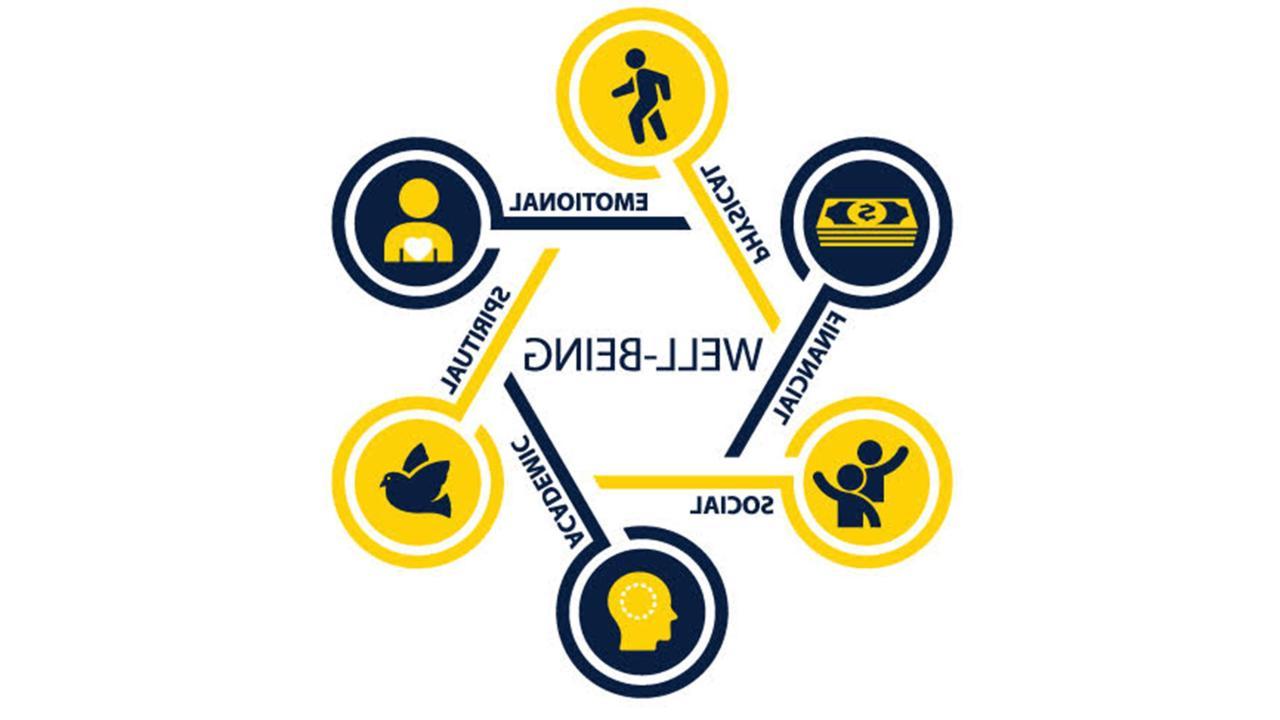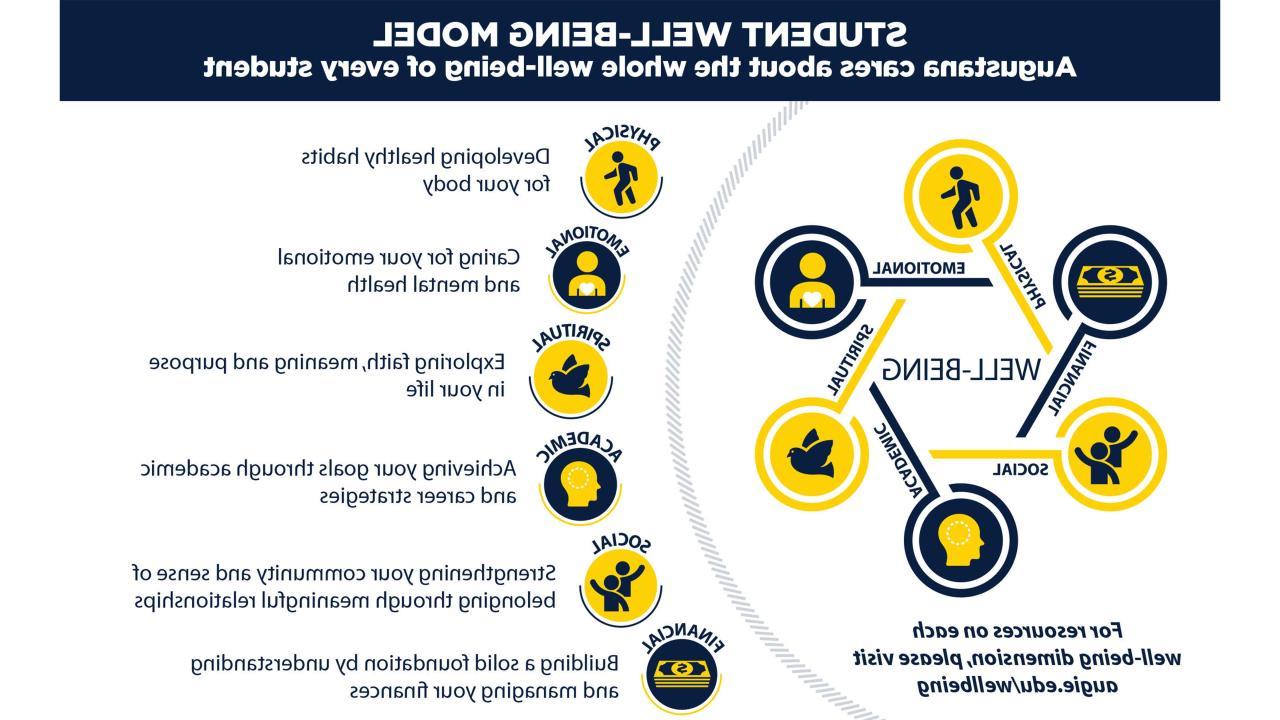Augustana has always been committed to the well-being of every student, 现在, a model has been developed integrating the key dimensions of well-being, and highlighting the interdisciplinary connections to success.
Senior Director for 社区 Eng年龄ment & Strategic Partnerships Suzie O'Meara Hernes ‘97, one of the developers of the model, said it emerged last spring following a study that showed the need for increased mental health and wellness services and support for students.
“One element that came out of that study was the need for an overall 幸福模型 because any of the dimensions of well-being could have an impact on your overall mental health and wellness,奥米拉·赫恩斯说.
There are six dimensions featured within the model including physical, 情感, 精神上的, 学术, social and financial well-being — all designed to help foster student development and wellness. The dimensions point students to resources related to developing healthy habits for their body, caring for their 情感 and mental health, as well as exploring their faith, meaning and purpose in life. Other dimensions of the model provide students with easier access to information that will help them achieve their goals through 学术 and career strategies, strengthen their community and sense of belonging through meaningful relationships and contributions, as well as build a solid foundation by understanding and managing their finances.
教务长 Mark Blackburn, another developer of the model, said faculty and staff are encour年龄d to point students to the model for available support and resources.
“I want to make sure students know what the model is, how to access it and then they can use it on their own accord,布莱克本说. “They no longer have to dig for phone numbers or emails. It's very open and self-explanatory.”
Ericka Kim, 22岁, a nursing major and third-year Viking Advisor (VA), said the 幸福模型 not only provides students with a landing p年龄 of resources, but pushes them to think consciously about their overall well-being.
“作为血管, we focus a lot on mental health and 学术s, but not as much on the financial dimension, 例如,金说。. “I don’t know much about that, but it's still part of my job to lead people to those resources.
“I think it also gives students autonomy to seek out resources on their own if they’re not comfortable talking about it.”
The 幸福模型 also incorporates the CliftonStrengths that Augustana utilizes to identify the top five strengths of each student, staff and faculty member.
“When you relate your strengths to the 幸福模型, you can identify for yourself, ‘If I'm a good communicator, how does that work with the social dimension in the 幸福模型? If I’m analytical, how can that strength be used within the 学术 dimension? Or, if harmony is one of my strengths, how can I use that in the 情感 dimension of my well-being?
And, how can I maximize my potential on those particular strengths?’”布莱克本说.
After finalizing the model over the summer, the resource has now been made easily accessible for everyone. First-year students were given a detailed overview of the model during Welcome Week sessions, and signs have been distributed around campus to lead students to the landing p年龄 on Augustana’s website.
The 幸福模型 can be found at sotanomc.net/WellBeing.

